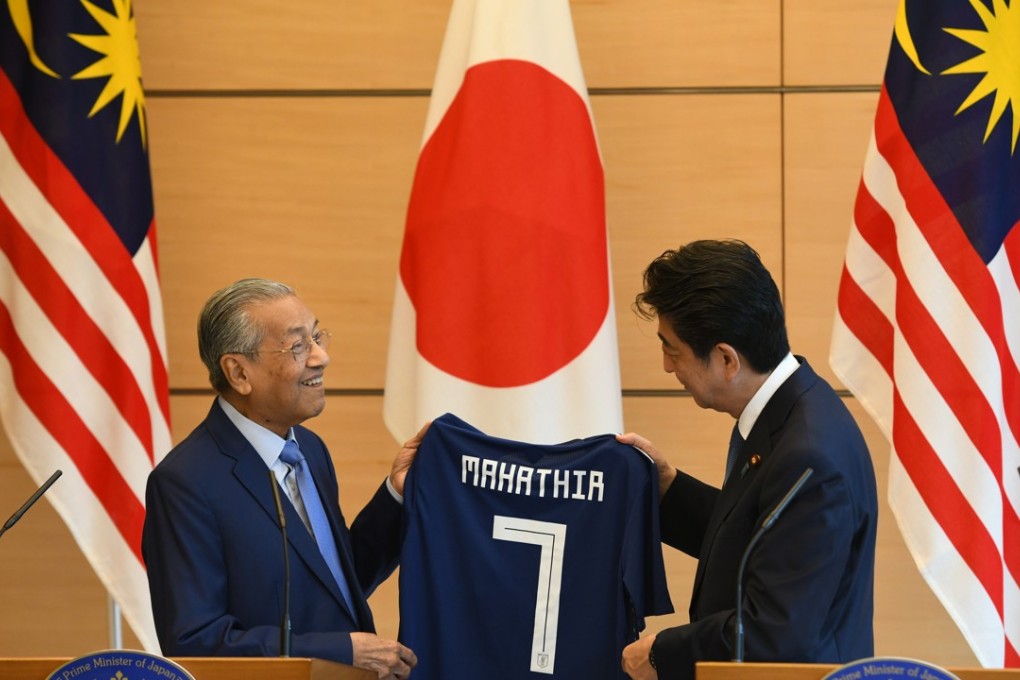Macroscope | Is Shinzo Abe offering Japan’s Samurai bonds as a foil against China’s debt diplomacy?
- Japan’s prime minister is offering 200 billion yen (US$1.75 billion) in aid to help wean Malaysia off its financial dependence on China’s loans
- Money is fungible, and governments borrowing money in global bond markets are free to direct those funds to projects

Chequebook diplomacy is gaining ground in Asia as China, Japan and the United States compete for economic and strategic influence in the region.
The latest case is Japanese Prime Minister Shinzo Abe’s offer of 200 billion yen (US$1.75 billion) in aid to help wean Malaysia off what has become its financial dependence on China.
Malaysia will use the aid, in the form of a loan, to replace some of its debt to China, whose lending to Malaysia and others for the Belt and Road Initiative has been described as debt-trap diplomacy.
Such refinancing makes economic sense, even if it does appear unlikely to enhance Sino-Japanese relations.
Last week’s Japan-Malaysia agreement has been viewed as a payback by Japan to Malaysia, which for years made Japan its model for its own development under an official Look East policy. Malaysia has also recently cancelled some major China-funded infrastructure projects.
But there is more to it than just that. What is significant about the deal between Abe and Malaysian Prime Minister Mahathir Mohamad when the 92-year-old leader visited Tokyo is that Japan has offered its Samurai bond market as a place for Malaysia to raise money with, in effect, a Japanese government guarantee.

